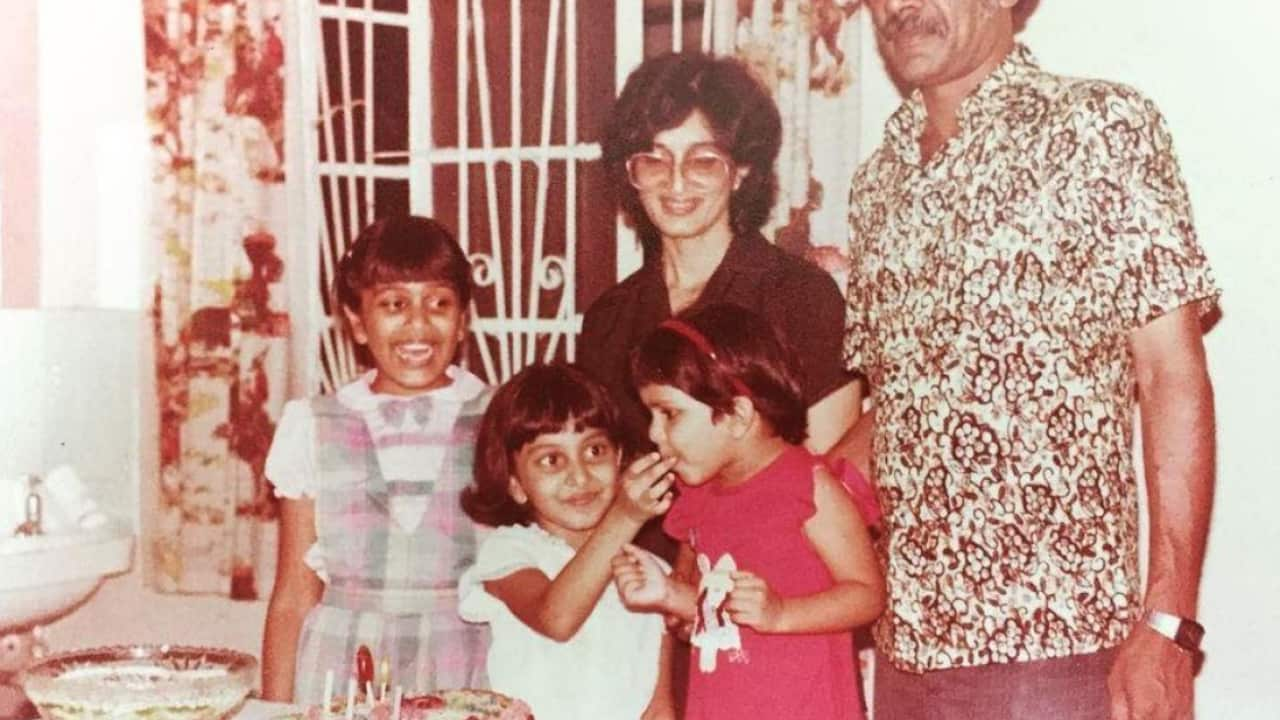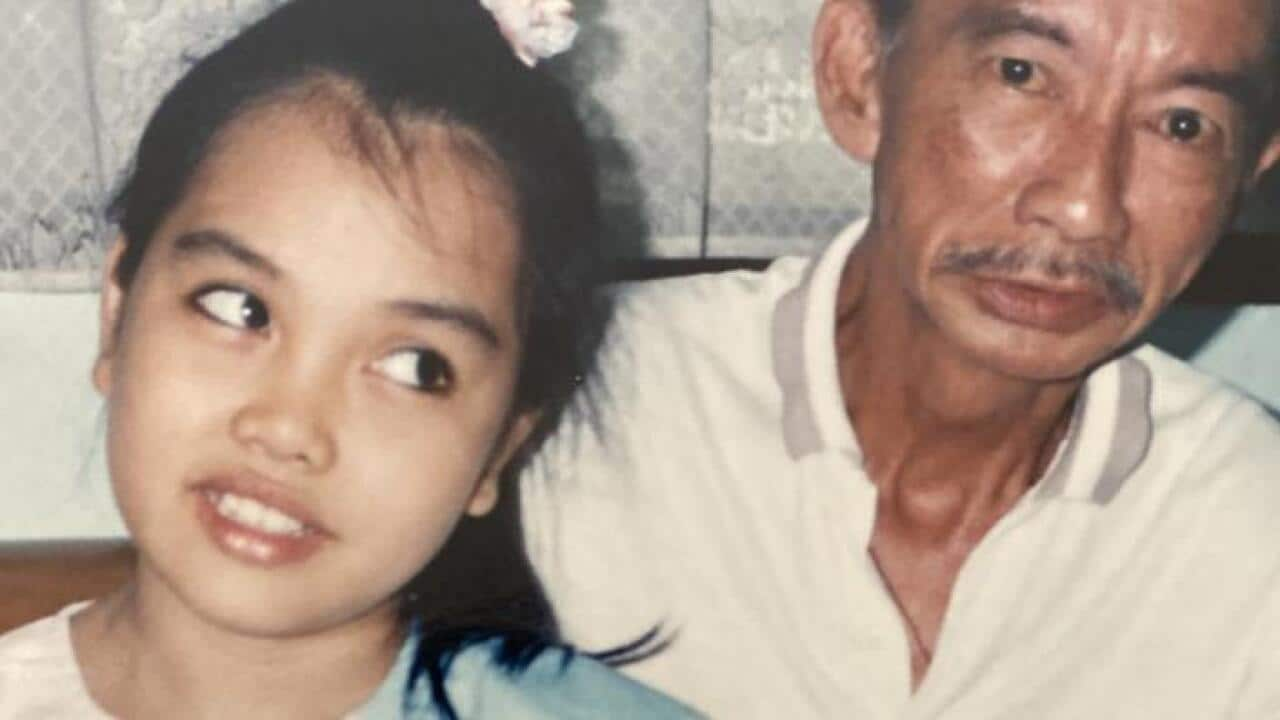When our conversation stalls, my mother says it: "I will embrace you again, soon my son, insha'Allah." I look at my mother's eyes, brimming with tears: "Be'izn ellah, with Allah's permission, Mama." My mother is soon 85 years old and she is five-foot tall, a fair and small-sized woman with a big heart. She smiles with exclamation mark dimples and shining white hair. We can't look each other in the eyes. Either we're looking at the camera or the screen. There's no release, only the emotional distraction of a virtual call.
My father sits in the background, watching the news on the television. His arm is resting on the chair, his head on his fist and his legs stretched out. My father is 80 years old, six-foot-three and cheerful but when my mother hands back the phone, his voice is one of defeat: "They're saying Australia is not opening up yet, maybe next year - ya Rab, dear God." I tell my dad not to watch the news but who am I kidding? Since I can remember my parents have learnt about the world around them through the tele. As for me, I chose another way. I began freelancing as a photographer and journalist from when I was 19. With a shoulder bag, a camera and a notepad, I went solo to Banda Aceh in '95 - in my young heart romanticising the separatist movement, GAM and their struggle for independence from Suharto's Indonesia. I turned 20, staring at cut-off heads mounted on wooden sticks at a village in the jungle, my finger shaking over the shutter. I caught malaria, praising Allah it wasn't a bullet in my chest.
I tell my dad not to watch the news but who am I kidding? Since I can remember my parents have learnt about the world around them through the tele. As for me, I chose another way. I began freelancing as a photographer and journalist from when I was 19. With a shoulder bag, a camera and a notepad, I went solo to Banda Aceh in '95 - in my young heart romanticising the separatist movement, GAM and their struggle for independence from Suharto's Indonesia. I turned 20, staring at cut-off heads mounted on wooden sticks at a village in the jungle, my finger shaking over the shutter. I caught malaria, praising Allah it wasn't a bullet in my chest.

Source: Supplied
My mother cried every time I went away. With NGOs such as Danish Church Aid, Conflict Recovery International, ICRC and many more, I was assigned to the forgotten fates of our humanity: human slavery in Cambodia, sex-trafficking in the Philippines and the millions across the world who live in unimaginable poverty. But I found my niche in the Middle East, covering the real human cost of war after war. I spent two decades travelling in and out of poverty, disease and conflict. But I kept buying the ticket, kept taking the ride. Lebanon, Gaza, at the end Syria.
I grew up in two countries, four hours apart by plane, Egypt and Denmark - a dichotomy between soul-breaking racism and heart-felt belonging. In my school years in Denmark, my class teacher would one day praise my skills, the next day mockingly forbid me to leave the class for a toilet visit - until I defecated on myself. I was born there but I was told I wasn't Danish. In Egypt, despite the hardships, I was embraced with the warmth of a candle, a true sense of belonging. People were in close proximity as well as in close communion. The sequel was cast-away Australia. As fates go, I was thrown off course from a long-contemplated face-off with the fate of my once life-love Nur and her family in Aceh, taken by the tsunami in 2004. I met the mother of my son in Broome in 2009 and although I had checked in, I never got on the flight back to Indonesia.
In Egypt, despite the hardships, I was embraced with the warmth of a candle, a true sense of belonging
Two years later I had become a father, and fatherhood presented me with questions I had never been asked. I spent another five years continuing my overseas treks and in the soul of my heart, the end of an assignment was only a flight away from the embrace of my mother - only a ride away from my family in Egypt. I became a permanent resident of Australia in 2011 but I still went home. The revolution against Mubarak flared in January that year but I went. I went through the years of turmoil and uncertainty that came in its wake - nothing could keep me away from the people I love. But at the same time, the love I felt for my son was growing into the rapture such love is meant to be. Zaki was born in Perth in April of 2011 but was conceived across the world, in Portugal, where I was staying at that time. His mother, Australian, also found herself with an extended family across three countries. Zaki met his second home in Denmark, and his grandparents. It was love at first sight. He discovered his third home in Egypt with laughter, food he recognised like Molokheia and Bamya, busy streets and more friends than he'd ever dreamed of, none of whom needed a playdate - in Egypt children still play in the streets.
Zaki was born in Perth in April of 2011 but was conceived across the world, in Portugal, where I was staying at that time. His mother, Australian, also found herself with an extended family across three countries. Zaki met his second home in Denmark, and his grandparents. It was love at first sight. He discovered his third home in Egypt with laughter, food he recognised like Molokheia and Bamya, busy streets and more friends than he'd ever dreamed of, none of whom needed a playdate - in Egypt children still play in the streets.

Source: Supplied
In 2020 Australia closed its international border. Zaki and I lost our tickets to go back to Egypt. Zaki cried. His world was already bigger than his island birthplace. I teach Zaki that home is not about bricks and mortar, not about a flag or football or Christmas. Home is where our soul lives, with the people we love, near or far. That is what gives our life meaning, makes it worthwhile.
As months went on, the uncertainty of when I would see my family again, whether in Denmark or in Egypt, became certain. My soul wept through my body as anxiety set in: spasms in the back and relentless pain. Several doctors later, I was asked: "Are you okay?"
"No, I'm not. I'm sad, depressed. My parents are in their eighties and every night I dream the same dream: I'm embracing my mother, saying: 'Ana bahebek, ya Mama - I love you, oh Mama.'"
When the last lockdown in WA ended, Zaki's eyes filled with tears: "Can we now see Giddo we Teta - Pop and Nan, again?"
I couldn't answer. I picked up the phone and called my parents on Whatsapp. There was no answer. My heart skipped a beat. As I waited, I wrote in my journal. Every day I write about my deepest fear. I admit I'm afraid, not of disease or of death but of not looking into my mother's eyes again, seeing her smile or smelling her hair as we embrace. I'm afraid of not feeling the laughter of my father in my chest. I called again. My parents were happy to see us. They always are. My mother said what she always says when the conversation stalls. She looks just a little bit older each time. Her new glasses were thicker, making her eyes even bigger, as well as her tears. Zaki drew air-hearts to her. She cried. I saw her tears, felt them, took them inside of me, and cried too.
I dream the same dream every night, praying our lockdown comes to an end.
This article has been published in partnership with Sweatshop: Western Sydney Literacy Movement.




